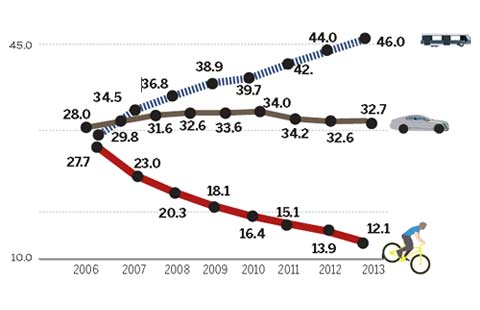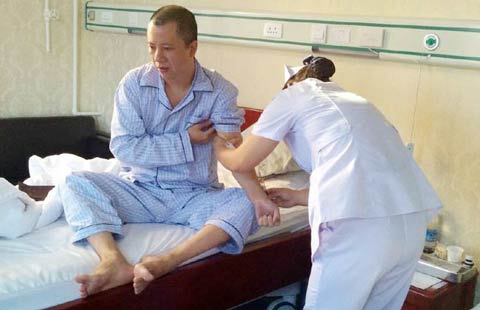Urbanization drives growth
Updated: 2014-09-18 07:39
(China Daily)
|
|||||||||||
The government is betting heavily on a new round of urbanization to provide the "kinetic energy" that bridges the urban-rural divide, promotes agricultural modernization, raises production capacities and farmers' incomes, stimulates consumption, attracts investment, incubates new industries, unleashes greater domestic demand, defuses the economy's downward pressures, and guarantees its steady and persistent progress.
Judging from what Premier Li Keqiang expects of this "powerful engine", the new type of urbanization holds essential weight in his mega-strategy for new breakthroughs, economically and socially.
Urbanization is a good bet for present-day China, not only because of its multiple potential benefits that are economic commonsense to all, but, more essentially, because of the grim socioeconomic reality of the urban-rural disparity.
While the dazzling new infrastructure in major cities amazes visitors from even the world's richest countries, the vast hinterlands of rural China stand in sharp contrast with what they see in Beijing and Shanghai. While the size of our economy inspires calls for ours to be treated as a developed economy, hundreds of millions of our compatriots still find themselves in a daily struggle to feed and clothe themselves.
Helping them out will not only fulfill a core government obligation, it also promises bumper economic rewards for the nation's economic health.
As in many previous reforms, the central authorities are deploying trial projects across the country. Sixty-two experimental pilots may yield valuable references for urbanization initiatives in regions that have varying conditions. This may be instrumental to finding ways that best suit the local realities.
But one thing must be made clear: The "kinetic energy" Li wants will not come out of nothing. Besides the latitude they have promised for local pilot programs, the central government must not grudge offering the financial resources needed.
Premier Li wants to see small- and medium-sized cities and county seats in the central and western areas prosper, so that large-scale migration, "like migratory birds", will discontinue.
But that simply will not happen until the problem is approached from the perspective of public-resource distribution. Unless policymakers in Beijing take a serious look at rural China's dire need for what has long been denied, the rhetoric about urbanization will sound hollow.
The government has a historic opportunity to correct a historical wrong. One that it cannot afford to miss.
Related Stories
Chinese premier stresses role of urbanization in economy 2014-09-17 10:00
Improving people's livelihood and promoting China's urbanization—experience and implications of people-oriented urbanization model in Manshan new industrial zone of Weihai 2014-09-02 14:10
China's urbanization strategy in new countryside construction and Manshan model 2014-09-02 14:02
Path of Population Urbanization 2014-08-22 16:39
Today's Top News
How Alibaba IPO learnt from Facebook's mistake
Russia to beef up troops in Crimea
10 problems of Chinese society
PBOC injects $81b into banks
iPhone 6 spawns Chinese satire
US general 'not rule out' larger ground role in Iraq
China's door to open wider, Li says
Shanghai FTZ official removed
Hot Topics
Lunar probe , China growth forecasts, Emission rules get tougher, China seen through 'colored lens', International board,
Editor's Picks

|

|

|

|

|

|





